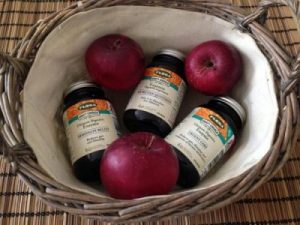Digestive enzymes seem pretty straightforward. They’re enzymes, and they help your digestion.
But what are digestive enzymes, exactly?
If you remember the word “enzyme” from your high school biology class, but you can’t quite remember what an enzyme is, you’re not alone. Simply put, an enzyme is a substance that sets off a reaction. Enzymes are like spark plugs to your engine: without them, you’re not going anywhere. In fact, enzymes are needed to set in motion over 5,000 reactions in the body.
There are lots of different kinds of enzymes in the body. Digestive enzymes help break down the foods you eat into their smallest particles.
Enzyme Breaks Down
amylase starch
cellulase fiber
lactase lactose
lipase fat
protease protein
alpha-galactosidase gas-producing foods such as beans
Enzymes can be produced by the person doing the digesting, and they can come bundled in the food being eaten. Sounds like a good system, but sometimes it can fail.
When things go wrong:
Not everyone has all the enzymes they need for optimal digestion. Here’s why:
As we get older, our ability to produce digestive enzymes diminishes.
Some people never produce certain enzymes. For example, people who are lactose intolerant lack the enzyme needed to digest dairy products.
Stress, caffeine, alcohol, and pregnancy can all decrease enzyme production.
Some diets, such as high-protein or high-fiber diets, can present digestive challenges without the right enzymes.
What to expect when you take digestive enzymes:
You’ll digest your food better and feel more comfortable.
You may have noticed that certain foods don’t seem to agree with you. You feel bloated after eating them or experience uncomfortable gas. One reason this can happen is that you’re not digesting your food well and it’s fermenting in your GI tract. Enzymes can help you digest your food better, which makes your tummy feel better.
You’ll absorb more nutrients from your food.
Food can’t nourish you completely if it isn’t completely broken down. Enzymes break down hard-to-digest foods, releasing their full spectrum of nutrients.
You may be satisfied with less food.
Some people find that taking digestive enzymes makes them feel more satisfied with the food they eat, possibly because the food is more completely digested and absorbed. As a result, you may notice a reduction in hunger and cravings.
You may be more regular.
When you first start taking enzymes, you may notice that you are having more frequent bowel movements. This is a sign that your digestion has become more efficient and food waste is moving more quickly through your system.
You may have more energy.
When you are digesting your food more completely, you get the full benefit everything you eat. Since your body is better fueled, you may feel more energetic.
www.florahealth.com

